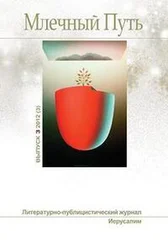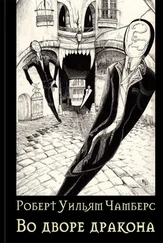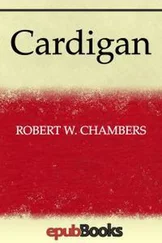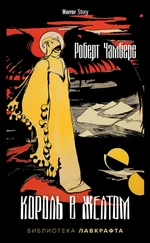Роберт Чамберс - In Search of the Unknown
Здесь есть возможность читать онлайн «Роберт Чамберс - In Search of the Unknown» весь текст электронной книги совершенно бесплатно (целиком полную версию без сокращений). В некоторых случаях можно слушать аудио, скачать через торрент в формате fb2 и присутствует краткое содержание. Год выпуска: 2014, Издательство: epubBooks Classics, Жанр: Фантастика и фэнтези, на английском языке. Описание произведения, (предисловие) а так же отзывы посетителей доступны на портале библиотеки ЛибКат.
- Название:In Search of the Unknown
- Автор:
- Издательство:epubBooks Classics
- Жанр:
- Год:2014
- ISBN:нет данных
- Рейтинг книги:3 / 5. Голосов: 1
-
Избранное:Добавить в избранное
- Отзывы:
-
Ваша оценка:
- 60
- 1
- 2
- 3
- 4
- 5
In Search of the Unknown: краткое содержание, описание и аннотация
Предлагаем к чтению аннотацию, описание, краткое содержание или предисловие (зависит от того, что написал сам автор книги «In Search of the Unknown»). Если вы не нашли необходимую информацию о книге — напишите в комментариях, мы постараемся отыскать её.
In Search of the Unknown — читать онлайн бесплатно полную книгу (весь текст) целиком
Ниже представлен текст книги, разбитый по страницам. Система сохранения места последней прочитанной страницы, позволяет с удобством читать онлайн бесплатно книгу «In Search of the Unknown», без необходимости каждый раз заново искать на чём Вы остановились. Поставьте закладку, и сможете в любой момент перейти на страницу, на которой закончили чтение.
Интервал:
Закладка:
"Great Heaven!" muttered the King, as Sir Peter settled down comfortably on his egg, "I am willing to give life and fortune for the sake of science, but I can't bear to hatch out eggs like a bird!"
The Crown–Prince was now sitting patiently beside the Baron de Becasse.
"I feel in my bones," he murmured, "that I'm about to hatch something. Can't you hear a tapping on the shell of your egg, Baron?"
"Parbleu!" replied the Baron. "The shell is moving under me."
It certainly was; for, the next moment, the Baron fell into his egg with a crash and a muffled shriek, and floundered out, dripping, yellow as a canary.
"N'importe!" he cried, excitedly. "Allons! Save the eggs! Hurrah! Vive la science!" And he scrambled up on the fourth egg and sat there, arms folded, sublime courage transfiguring him from head to foot.
We all gave him a cheer, which was hushed as the stage–manager ran in, warning us that the audience was already assembled and in place.
"You're not going to raise the curtain while we're sitting, are you?" demanded the King of Finland, anxiously.
"No, no," I said; "sit tight, your Majesty. Courage, gentlemen! Our vindication is at hand!"
The Countess glanced at me with startled eyes; I took her hand, saluted it respectfully, and then quietly led her before the curtain, facing an ocean of upturned faces across the flaring footlights.
She stood a moment to acknowledge the somewhat ragged applause, a calm smile on her lips. All her courage had returned; I saw that at once.
Very quietly she touched her lips to the eau–sucrée , laid her manuscript on the table, raised her beautiful head, and began:
"That the ux is a living bird I am here before you to prove—"
A sharp report behind the curtain drowned her voice. She paled; the audience rose amid cries of excitement.
"What was it?" she asked, faintly.
"Sir Peter has hatched out his egg," I whispered. "Hark! There goes another egg!" And I ran behind the curtain.
Such a scene as I beheld was never dreamed of on land or sea. Two enormous young uxen, all over gigantic pin–feathers, were wandering stupidly about. Mounted on one was Sir Peter Grebe, eyes starting from his apoplectic visage; on the other, clinging to the bird's neck, hung the Baron de Becasse.
Before I could move, the two remaining eggs burst, and a pair of huge, scrawny fledglings rose among the débris, bearing off on their backs the King and Crown–Prince.
"Help!" said the King of Finland, faintly. "I'm falling off!"
I sprang to his aid, but tripped on the curtain–spring. The next instant the green curtain shot up, and there, revealed to that vast and distinguished audience, roamed four enormous chicks, bearing on their backs the most respected and exclusive aristocracy of Europe.
The Countess Suzanne turned with a little shriek of horror, then sat down in her chair, laid her lovely head on the table, and very quietly fainted away, unconscious of the frantic cheers which went roaring to the roof.
This, then, is the true history of the famous exposition scandal. And, as I have said, had it not been for the presence in that audience of two American reporters nobody would have known what all the world now knows—nobody would have read of the marvellous feats of bareback riding indulged in by the King of Finland—nobody would have read how Sir Peter Grebe steered his mount safely past the footlights only to come to grief over the prompter's box.
But this is scandal. And, as for the charming Countess Suzanne d'Alzette, the public has heard all that it is entitled to hear, and much that it is not entitled to hear.
However, on second thoughts, perhaps the public is entitled to hear a little more. I will therefore say this much—the shock of astonishment which stunned me when the curtain flew up, revealing the King–bestridden uxen, was nothing to the awful blow which smote me when the Count d'Alzette leaped from the orchestra, over the footlights, and bore away with him the fainting form of his wife, the lovely Countess d'Alzette.
I sometimes wonder—but, as I have repeatedly observed, this dull and pedantic narrative of fact is no vehicle for sentimental soliloquy. It is, then, merely sufficient to say that I took the earliest steamer for kinder shores, spurred on to haste by a venomous cable–gram from the Smithsonian, repudiating me, and by another from Bronx Park, ordering me to spend the winter in some inexpensive, poisonous, and unobtrusive spot, and make a collection of isopods. The island of Java appeared to me to be as poisonously unobtrusive and inexpensive a region as I had ever heard of; a steamer sailed from Antwerp for Batavia in twenty–four hours. Therefore, as I say, I took the night–train for Brussels, and the steamer from Antwerp the following evening.
Of my uneventful voyage, of the happy and successful quest, there is little to relate. The Javanese are frolicsome and hospitable. There was a girl there with features that were as delicate as though chiselled out of palest amber; and I remember she wore a most wonderful jewelled, helmet–like head–dress, and jingling bangles on her ankles, and when she danced she made most graceful and poetic gestures with her supple wrists—but that has nothing to do with isopods, absolutely nothing.
Letters from home came occasionally. Professor Farrago had returned to the Bronx and had been re–elected to the high office he had so nobly held when I first became associated with him.
Through his kindness and by his advice I remained for several years in the Far East, until a letter from him arrived recalling me and also announcing his own hurried and sudden departure for Florida. He also mentioned my promotion to the office of subcurator of department; so I started on my homeward voyage very much pleased with the world, and arrived in New York on April 1, 1904, ready for a rest to which I believed myself entitled. And the first thing that they handed me was a letter from Professor Farrago, summoning me South.
XIII
The letter that started me—I was going to say startled me, but only imaginative people are startled—the letter, then, that started me from Bronx Park to the South I print without the permission of my superior, Professor Farrago. I have not obtained his permission, for the somewhat exciting reason that nobody knows where he is. Publicity being now recognized as the annihilator of mysteries, a benevolent purpose alone inspires me to publish a letter so strange, so pathetically remarkable, in view of what has recently occurred.
As I say, I had only just returned from Java with a valuable collection of undescribed isopods—an order of edriophthalmous crustaceans with seven free thoracic somites furnished with fourteen legs—and I beg my reader's pardon, but my reader will see the necessity for the author's absolute accuracy in insisting on detail, because the story that follows is a dangerous story for a scientist to tell, in view of the vast amount of nonsense and fiction in circulation masquerading as stories of scientific adventure.
I was, therefore, anticipating a delightful summer's work with pen and microscope, when on April 1st I received the following extraordinary letter from Professor Farrago:
"IN CAMP, LITTLE SPRITE LAKE,
"EVERGLADES, FLORIDA, March 15, 1902.
"MY DEAR MR. GILLAND,—On receipt of this communication you will immediately secure for me the following articles:
"One complete outfit of woman's clothing.
"One camera.
"One light steel cage, large enough for you to stand in.
"One stenographer (male sex).
"One five–pound steel tank, with siphon and hose attachment.
"One rifle and ammunition.
"Three ounces rosium oxyde.
Читать дальшеИнтервал:
Закладка:
Похожие книги на «In Search of the Unknown»
Представляем Вашему вниманию похожие книги на «In Search of the Unknown» списком для выбора. Мы отобрали схожую по названию и смыслу литературу в надежде предоставить читателям больше вариантов отыскать новые, интересные, ещё непрочитанные произведения.
Обсуждение, отзывы о книге «In Search of the Unknown» и просто собственные мнения читателей. Оставьте ваши комментарии, напишите, что Вы думаете о произведении, его смысле или главных героях. Укажите что конкретно понравилось, а что нет, и почему Вы так считаете.












